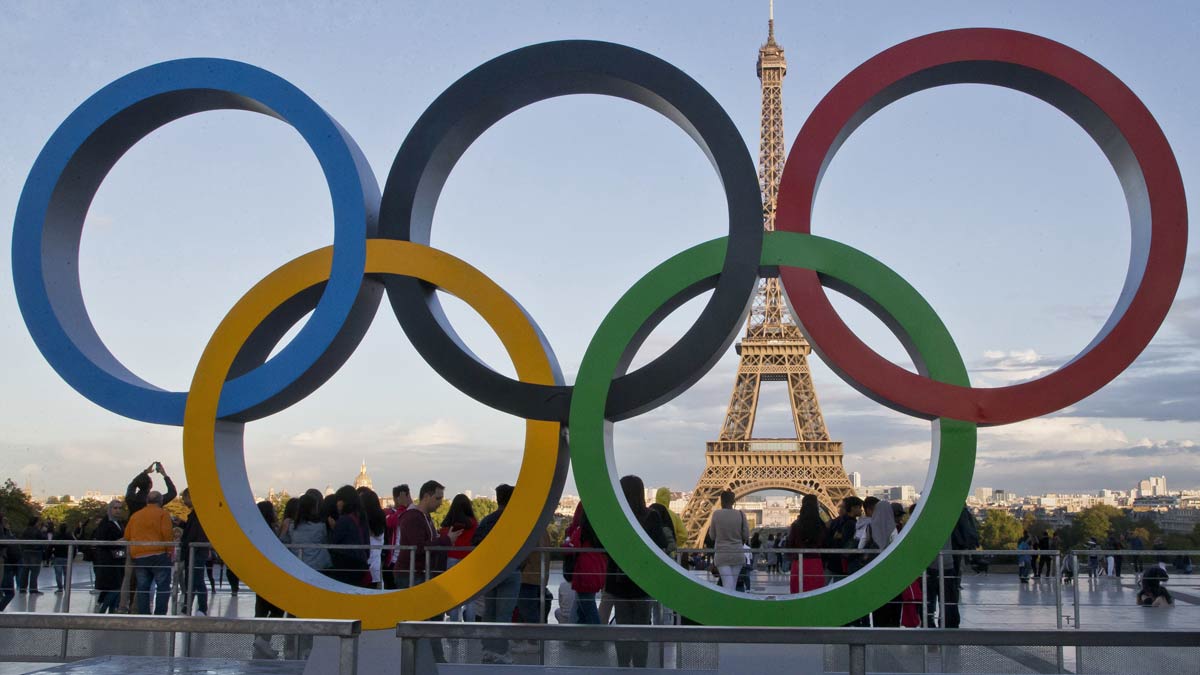
The upcoming Paris Olympics promises not only thrilling sportsmanship but also a commitment to health and safety, thanks to the concerted efforts of the World Health Organization (WHO), the International Olympic Committee (IOC), and the French government. This collaborative initiative aims to create an environment where both athletes and spectators can thrive, promoting physical activity and safeguarding public health.
Table of Content:-
WHO’s Role in Promoting Health and Safety
WHO Director-General Dr Tedros Adhanom Ghebreyesus emphasized the organization’s proactive role in ensuring the Paris Olympics are a model of health and safety. "From promoting physical activity to protecting people from a range of health threats, WHO has been proud to play its part in making the Paris Olympics a success," he stated.
In alignment with this mission, WHO has been working closely with the IOC and France, leveraging their partnership through a renewed memorandum of understanding. This collaboration has spurred the launch of the "Let’s Move" campaign, which aims to inspire global audiences and athletes to embrace physical activity for better health. This initiative highlights the power of sports as a platform for promoting healthier lifestyles.

Legacy of Physical Activity for Students
One of the standout programs introduced in conjunction with the "Let’s Move" campaign is a mandate for 30 minutes of daily physical activity for school students across France. This initiative ensures that the health benefits of the Paris Olympics extend beyond the games themselves, leaving a lasting legacy of improved health for future generations.
Comprehensive Health Security Measures
WHO's health security experts have been integral in planning and preparing for the games. Their efforts focus on mitigating various health risks, including heatwaves, infectious diseases, food and water safety hazards, terrorism, and crowd management. This comprehensive approach is designed to protect the well-being of everyone involved in the Olympics, from participants to spectators.
In collaboration with the European Centre for Disease Prevention and Control (ECDC) and French authorities, WHO has developed joint public health advice for travellers attending the Olympics. This guidance covers essential health measures such as recommended vaccinations, protection against respiratory and mosquito-borne illnesses, and tips for staying cool and hydrated. This initiative aims to ensure that the millions of visitors to France for this iconic event can enjoy a safe and healthy experience.
Simulation Exercises and Surveillance
To further bolster health security, WHO has actively participated in IOC Paris 2024 simulation exercises. These exercises are designed to test and refine public health plans, ensuring readiness for any potential health events during the Olympics. Additionally, WHO has established Olympics-specific health event-based surveillance and is producing daily situation reports in collaboration with the ECDC. These reports help identify early signals of health issues and support timely responses, enhancing the overall safety and health management of the games.
Dr Tedros and the Olympic Torch Relay
Dr Tedros is also playing a symbolic role in the Olympic Torch Relay, highlighting WHO's commitment to the event. His participation underscores the importance of global health leadership in promoting and protecting public health during major international events.
Commitments at the Paris Summit on Sports for Sustainable Development
In addition to its involvement in the Olympics, WHO is making significant commitments at the Paris Summit on Sports for Sustainable Development. Hosted by the French Presidency and the IOC, this summit provides a platform for WHO to pledge its support for improving global nutrition and combating obesity. WHO aims to mobilize efforts ahead of the fourth Nutrition for Growth Summit in Paris next year, with a goal of reducing obesity prevalence in targeted countries by 5% by 2030.
Also Read: Paris Olympic Games 2024: WHO Issues Critical Health Advisory for Visitors to France
These commitments include enhancing support for countries to improve diets, promote physical activity, and provide essential services for diagnosing and managing obesity. By focusing on these areas, WHO hopes to create a healthier global population and ensure that the legacy of the Paris Olympics extends far beyond the games themselves.
Bottomline
The collaboration between WHO, IOC, and France for the Paris Olympics is a testament to the power of partnership in promoting health and safety on a global scale. Through initiatives like the "Let’s Move" campaign, daily physical activity for students, comprehensive health security measures, and commitments to improving nutrition, this collaborative effort is setting a new standard for health-focused international events. As the world looks forward to the Paris Olympics, the focus on health and safety ensures that this will be an event where both athletes and spectators can thrive in a healthy environment.
Also watch this video
How we keep this article up to date:
We work with experts and keep a close eye on the latest in health and wellness. Whenever there is a new research or helpful information, we update our articles with accurate and useful advice.
Current Version